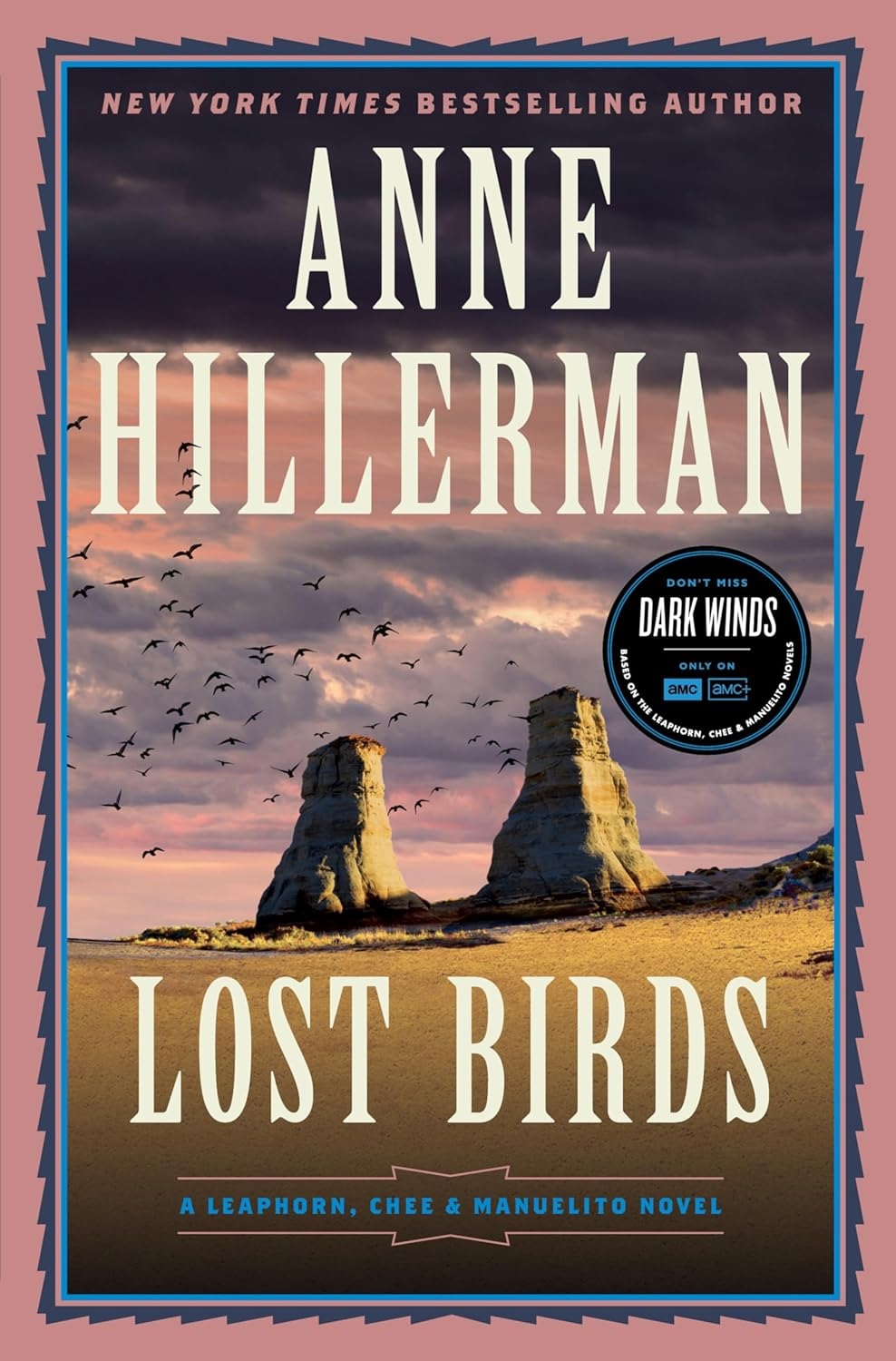
Lost Birds
by Anne Hillerman
HarperCollins, 2024
Reviewed by Barbara Free, M.A.
This new book, Lost Birds, concerns people who were adopted into Anglo families from the Navajo Reservation in the past. Other books, both fiction and non-fiction, have been written about this controversial subject. Native American children removed in this way from their culture and families of origin are referred to as “Lost Birds.” We were able to attend a talk and book-signing by Ms. Hillerman when this latest book was released. It was standing room only, literally. When she ended her talk, attendees could talk with her and get a book (or more) signed, which we did. We were able to talk with her personally for a few minutes. She had said in her talk that she had always wanted to include adoption as an issue in her writing. She is her parents’ biological daughter, but all four of her siblings were adopted, each from different circumstances. When the U.S. Supreme Court was considering upholding or overturning the Indian Child Welfare Act (ICWA), which says that Native children in need of adoption or foster care must first be placed with family, and if that is not possible, within their own tribe or group, and if that is not possible, placed with people who are Native American. Only if none of that is possible is placement with white or other people who are not Native. The Court did decide in 2023 to let the law stand. The case inspired Anne Hillerman to write a book about such Lost Birds. That is not the only subject in this book, but it is a central one. Other issues are estranged offspring, and people who have lost their moral moorings. They are lost birds in their own way.
Joe Leaphorn, a retired Navajo policeman and one of the original characters in the series, plays a major role in this latest book, as her takes on two clients as a private investigator, one a young man he had helped when the man was a child, and whose wife is now missing, and the other an older woman who believes she is Navajo, raised by white parents who are now deceased, and she knows nothing of her origins nor her birth name. Her only clues are her birth certificate (which turns out to be not really authentic), a photo of two people in front of a formation known as Elephant Feet, apparently holding a baby covered by a Navajo weaving in a style known as Storm Pattern, and a tiny silver-and-turquoise bracelet. She found the photo and bracelet in a small box after her mother died. Her adoptive parents moved all over the country and she had the name Stella Brown, but knew that was not her birth name. She was not interested in a DNA test, because she is afraid of “third cousins or long-lost phony half-sisters or whatever.” She also says DNA contradicts the Navajo creation story, so she is skeptical. Yet she wants results right away from Leaphorn’s searching. He says he cannot promise her anything, but will give it a try.
In the other case, Cecil Bowlegs wants him to find his wife, who has been missing three weeks. As they are talking on the phone, Leaphorn hears the sound of a loud explosion on Bowlegs’ phone and the line goes dead. On the same day, Leaphorn’s long-time companion and housemate, Louisa, says her son, whom she has not seen in several years, had called and is coming for a visit. He turns out to be lost in quite another way.
This book, and all these situations, turn out to have many twists and turns, and the resolution of each situation is complicated and unexpected, even by seasoned Hillerman readers. The stories are too complex and too interesting to give away more details, except to say the reader will find this a can’t-put-it-down book and will wish it would not end so soon, yet be relieved when the mysteries are solved. The adoption issues are quite thoroughly explored, and very realistic. We would highly recommend Lost Birds to anyone who likes mysteries and to anyone who has an adoption connection or interest, or anyone who enjoys reading about the Southwest or Native American issues.
Excerpted from the June 2024 edition of the Operation Identity Newsletter
© 2024 Operation Identity